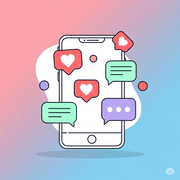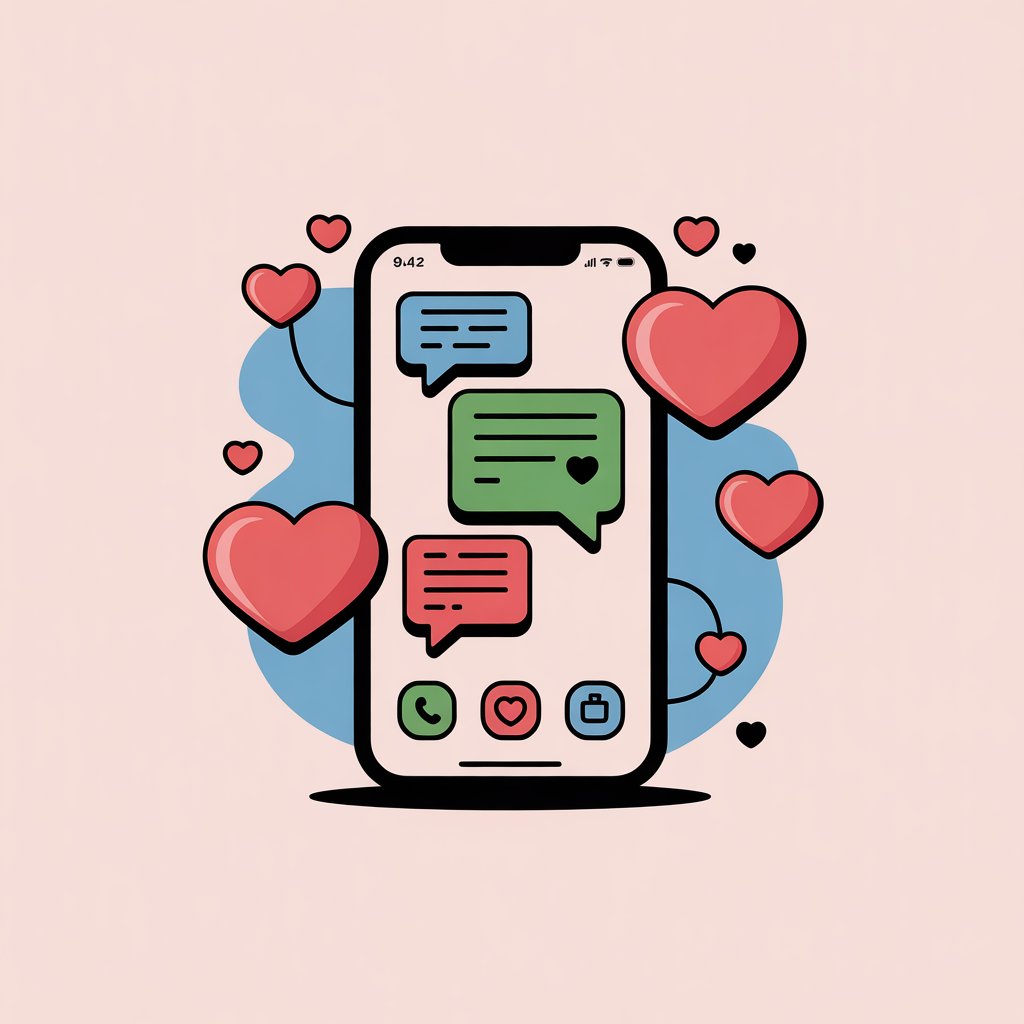From the first tentative dial-up connections to the now-ubiquitous swipe, the way we find love has been completely reshaped by technology. Dating apps are no longer a novelty; for millions, they are the primary gateway to romance.
But this digital courtship is on the brink of another profound transformation. The simple swipe-right, swipe-left mechanic is becoming yesterday’s news. We are entering an era where artificial intelligence, immersive virtual worlds, and hyper-specific communities will redefine what it means to connect online. The future of dating isn’t just about more profiles; it’s about smarter, deeper, and more personalized experiences.
The Current Landscape: Moving Beyond the Swipe
For the last decade, the dating app world has been dominated by a simple, gamified model. This “swipe culture” made online dating accessible and fast-paced. However, users are increasingly reporting “swipe fatigue” and a desire for more meaningful interactions. In response, leading apps have already started to evolve.
🔒 Secure verification required. Ad-supported content.
By tapping, you agree to our Terms of Use.
Platforms like Hinge famously branded themselves as the app “designed to be deleted,” encouraging users to showcase their personalities through question prompts and multimedia stories rather than just static photos. Others have integrated video calls and voice notes, allowing for a more authentic pre-date vibe check. Behind the scenes, the matching algorithms have grown more sophisticated, learning from user behavior to refine suggestions. Yet, these are just incremental changes compared to the seismic shifts on the horizon.
AI: Your Personal Matchmaking Supercomputer
Artificial Intelligence (AI) is poised to become the single most disruptive force in online dating. Its role will extend far beyond the current data-sorting algorithms, becoming an active co-pilot in our search for connection.
Smarter, Deeper Matching Algorithms
Today’s algorithms primarily match based on stated preferences (age, location, interests) and observed behavior (who you swipe on). Future AI will perform a much deeper analysis. Imagine an AI that can:
- Analyze Communication Styles: By reviewing your in-app chats (with your permission), the AI could learn your sense of humor, your level of sarcasm, and your conversational rhythm, matching you with someone who complements your style.
- Understand Photo Nuances: Instead of just seeing a photo, AI could interpret the context—identifying a genuine, Duchenne smile, a love for adventure in your travel photos, or a preference for quiet nights in based on your background environments.
- Behavioral Pattern Recognition: The AI could notice you’re most active on Tuesday nights or that you respond best to profiles that mention volunteer work, using this data to present highly compatible matches at the optimal time.
AI-Powered Conversation Coaches
One of the biggest hurdles in online dating is breaking the ice and keeping a conversation going. AI will soon offer a helping hand. This isn’t about creating fake, robotic conversations, but about augmenting our own skills. An AI coach could offer real-time, private suggestions like, “You’ve asked three questions in a row. Try sharing a personal story related to their last answer.” It could even help you craft a more engaging bio by analyzing the profiles of users you find interesting.
Verifying Authenticity and Combating Catfishing
Trust is the foundation of any relationship, and it’s often fragile online. AI will be the ultimate security guard. Advanced liveness detection and biometric analysis during onboarding will make it nearly impossible to create a fake profile. Furthermore, AI will monitor linguistic patterns in chats to flag potential scammers or bots with a high degree of accuracy, creating a much safer environment for genuine connection.
Immersive Experiences: Virtual and Augmented Reality Dating
If AI is the brains of future dating, then virtual and augmented reality (VR/AR) will be the heart, providing the immersive experiences we crave. These technologies will bridge the gap between digital profiles and real-world chemistry.
First Dates in the Metaverse
The pressure of a first date can be immense. What if you could have a fun, low-stakes experience from the comfort of your own home? With VR, you could. Instead of a standard coffee date, your first meeting could be a walk through a virtual recreation of ancient Rome, a doubles match of zero-gravity tennis, or a collaborative painting session in a digital art studio. As the concept of the metaverse matures, these shared digital spaces will offer limitless creative date options, perfect for long-distance couples or simply for breaking the ice in a more dynamic way than a video call.
Augmented Reality Icebreakers
AR technology will overlay digital information onto the real world, seamlessly blending online dating with in-person social events. Picture this: you’re at a partner music festival or a singles mixer. You hold up your phone, and through an AR lens, you can see subtle indicators above the heads of other app users who are also open to connecting. Tapping on an indicator might bring up a shared interest or a fun fact from their profile, providing the perfect, context-aware icebreaker to start a real-life conversation.
Hyper-Niche and Community-Focused Platforms
The one-size-fits-all model of mega-apps is beginning to fracture. Users are seeking platforms that cater to their core identities, values, and passions. This trend toward hyper-specialization will only accelerate.
We’ve already seen the success of apps for specific communities, like Stir for single parents or Kippo for gamers. The future will bring even more granular platforms: an app for vegan rock climbers, another for minimalist digital nomads, or one exclusively for people who are passionate about regenerative agriculture. These platforms succeed by replacing endless swiping with a sense of shared community and understanding from the very first interaction.
Mainstream vs. Niche App Philosophies
The fundamental difference lies in their approach to building a user base and fostering connections. This table illustrates the key distinctions:
| Feature | Mainstream Apps (e.g., Tinder, Bumble) | Hyper-Niche Apps (e.g., Stir, Kippo) |
|---|---|---|
| User Pool | Vast and diverse, focusing on quantity. | Smaller and highly targeted, focusing on quality. |
| Primary Filter | Location, age, and general interests. | A specific, non-negotiable lifestyle, hobby, or value. |
| User Intent | Broad: ranges from casual hookups to serious relationships. | Specific: to find a partner who shares a core aspect of their identity. |
| Community Feel | Generally low; interactions are typically one-on-one. | Often high, with forums, events, and group activities. |
The Evolution of Safety and Privacy in Dating Tech
As these technologies gather more personal and behavioral data, the demand for robust safety and privacy controls will become paramount. The future of dating tech must be built on a foundation of trust. We will see an increase in mandatory, multi-factor identity verification to eliminate anonymity for bad actors. Users will also be given granular dashboards to control exactly which pieces of their data are used by the matching AI, opting in or out of features like conversation analysis.
Furthermore, in-app safety tools will become even more integrated. Features like the partnership between Tinder and the safety app Noonlight, which allows users to discreetly alert emergency services, will become standard. The goal is to create a digital space that not only connects people but actively protects them throughout the process.
Conclusion: A More Intentional and Personalized Future
The next chapter in online dating is moving away from a game of chance and toward a more intentional, insightful, and human-centric process. The integration of sophisticated AI will help us understand ourselves and our potential partners on a deeper level, cutting through the noise to find true compatibility. VR and AR will provide more engaging and authentic ways to interact, breaking down the barriers of distance and first-date awkwardness.
Ultimately, whether through an AI coach suggesting a thoughtful question or a shared VR experience that sparks a genuine laugh, technology will serve as a more powerful catalyst for human connection. While the tools are becoming more advanced, the goal remains timeless: to find someone who truly understands us. This evolution points to a hopeful future where technology doesn’t just help us find a date, but helps us build a meaningful relationship. As a growing body of evidence shows, the impact and intricacies of this digital revolution are a critical area of study, and you can explore some comprehensive research into the future of dating app technology to understand its societal effects more deeply.





